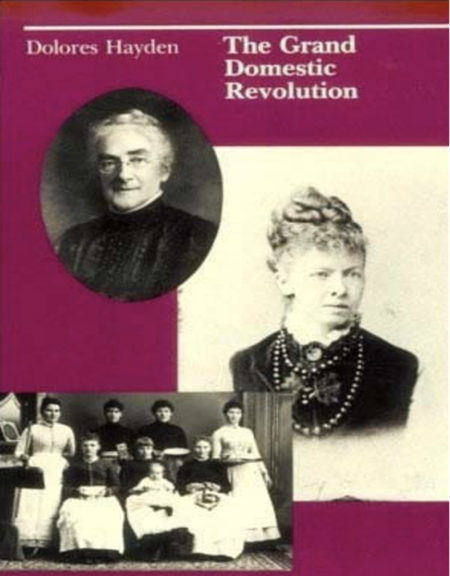Material Feminists against patriarchy
The current dominant approach to food is based on individual choices: people choose what to buy and most worryingly, how much food to waste individually, or as part of their family arrangements. The current food system approach does little to include considerations of what food is available, how this relates to a colonial past, and how this is prepared and eaten. Often women are expected to be in charge of food preparation even when they have caring responsibilities and a full time job outside the home. However, the emerging community kitchen movement can build on the historical imaginary of the materialist feminist movement of the late Nineteenth century, which has been envisioning a world in which kitchens where part of social collective arrangements, rather than individualised segregated spaces aligned with patriarchal oppressive family structures.

“The Grand Domestic Revolution” - book cover
A multiplicity of spatial and social arrangements were experimented and designed: from kitchenless houses with shared housekeeping facilities, to large scale co-housing /neighbourhoods with central kitchens (see image). Contemporary, agroecology-based and politically-active community kitchens can help to reconsider food and meal production as a collective responsibility, challenging patriarchy and colonialism both in the fields and in the house.

© Hayden, as cited in DICK URBAN VESTBRO and LIISA HORELLI (2012), “Design for Gender Equality: The History of Co-Housing Ideas and Realities” in Built Environment, Vol. 38, No. 3, Co-Housing in the Making (2012), pp. 315-335